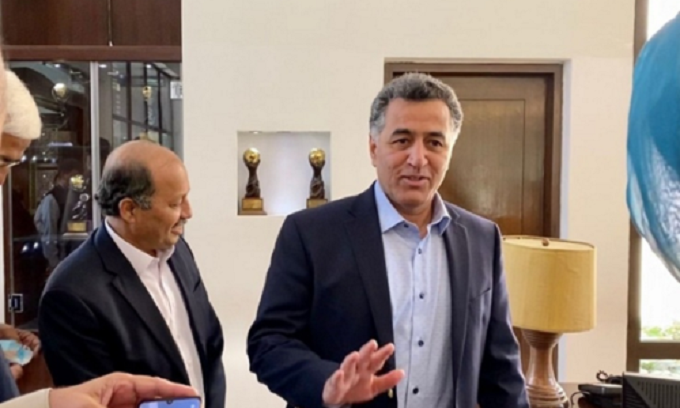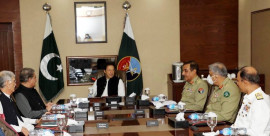
The intelligence chiefs of key regional countries, including Pakistan, Iran, China, Uzbekistan, Tajikistan and Turkmenistan, held a rare meeting in Islamabad to discuss the evolving situation in Afghanistan.
Although there was no official confirmation from any side, sources confirmed that Director General Inter-Services Intelligence (ISI) Lt-Gen Faiz Hameed hosted the spy chiefs of these regional players.
The meeting, according to the sources, took place against the backdrop of the unfolding situation in Afghanistan, where the Afghan Taliban returned to power after being ousted from Kabul following the 9/11 attacks in the United States.
There has been a flurry of visits being undertaken by foreign ministers of several countries as well as intelligence chiefs. Earlier, American CIA chief and British intelligence agency MI6 head also travelled to the region, making stopovers in Islamabad and New Delhi.
The latest meeting hosted by the ISI chief indicated Pakistan’s hectic diplomatic efforts to develop consensus on the way forward for Afghanistan. Pakistan is keen that the world, particularly the regional countries, do not leave Afghanistan alone and accept the new reality.
Read Pakistan urges world to ‘incentivise’ Taliban
The meeting of regional intelligence chiefs is also significant in the context of possible negative fallout of instability in Afghanistan on its neighbours. Pakistan, Russia, China and Central Asian states are worried that if there is further instability in Afghanistan, security of the entire region could be jeopardised.
They are particularly concerned over terrorist outfits such as Islamic State of Iraq and Syria (ISIS)-Khorasan that poses threats not just to the people of Afghanistan but also to the countries such as Pakistan, China, Iran and Russia.
Earlier, Foreign Minister Shah Mehmood Qureshi hosted the virtual meeting of the foreign ministers of regional countries on the Afghanistan situation. Pakistan feels that the world needs to adopt a new approach on Afghanistan. It is calling for discarding the old lenses and developing a strategy that reflects the ground realities in Afghanistan.
Islamabad also insists that the policy of intimidation and coercion has failed in Afghanistan and hence international engagement, opposed to international isolation, is the best way forward.
Pakistan is worried that economic meltdown in Afghanistan will have dangerous consequences. It fears that economic collapse will create a security vacuum in Afghanistan leading to the re-emergence of terror threat.
The UN secretary general has also warned that the economic collapse of Afghanistan will be a ‘gift” for terrorists.

1723032398-0/BeFunky-collage-(36)1723032398-0-405x300.webp)
1730516134-0/Diddy--Lopez-(1)1730516134-0-165x106.webp)



1730531553-0/Express-Tribune--(1)1730531553-0-270x192.webp)

1730533347-0/Untitled-design-(85)1730533347-0-270x192.webp)



1631200112-0/01-(16)1631200112-0-270x192.webp)








COMMENTS (6)
Comments are moderated and generally will be posted if they are on-topic and not abusive.
For more information, please see our Comments FAQ